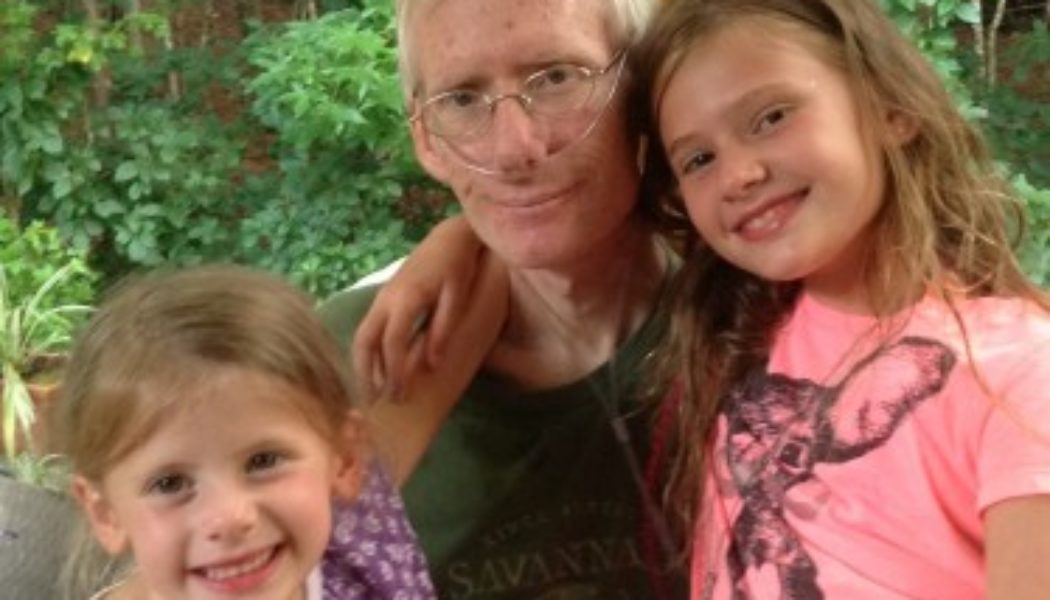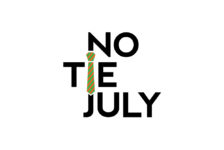A few years ago, I was having lunch with a friend, Shahira, and I was lamenting how tough things were going. Chris wasn’t doing well. We were talking about treatments and hospitals, discussing practical things like jobs and money. Shahira asked, “How are the girls doing?”
My stomach lurched. I shook my head no in the way one does when you can’t talk because you’re going to cry. All I could say was, “I can’t talk about my girls. Not here.”
I couldn’t then and there, but later, I went back to my friend in a private place where I could cry with her and she could cry too. Shahira lost her dad to cancer when she was a teenager. I wanted her advice about helping my girls. She told me about the memories. The absurdity of the hospital bed in their formal living room. It was next to the couch where they weren’t allowed to sit. Watching her dad go from strong to weak and emaciated. Tough memories. The kind of thing you don’t want to think about.
But I did have to think about it. Kate was 9 and Josie was 4 when they lost their dad. Caring for Chris at the end of his life was just as much about caring for them. Did I do a good job? I don’t know. I tried to give them as much time with him as possible while trying to spare them the toughest moments. I’ve come to the conclusion that there’s really no such thing as a right or wrong way to manage something so difficult and sad.
Today, as a patient advocate, I’ve helped a number of families through similar moments. Like Shahira did for me, I tell people honestly what I think worked—and what I wish I would have done differently. Recently, Kate and I attended a funeral for a woman who died of breast cancer, leaving behind a husband and five young children. I was so proud of Kate afterward. My normally shy and reserved child told that young father that they would be OK.
“We still talk about my dad all the time,” she said. “He’s in our hearts.”
As we come close upon the anniversary of Chris’s birth and his death, it’s fitting to share again some writing I did on this topic. No one wants to talk about these things, but we have to.
“This Moment” (Originally published in 2013)
I make my way from Chris’s parent’s house just outside of Savannah to Tybee Island. The girls are staying there with my parents.
I’ve come to love this drive. A tour though downtown Savannah, the turn onto the island expressway as we shift from city squares to tidal marshes. My heart always lightens a bit when I cross the bridge that covers the intercoastal waterway.
But, not today.
Today’s drive has a purpose and I’m frightened and unprepared. I still haven’t entirely convinced myself that I’ll follow through with it. I haven’t planned what I’ll really say. Over the last few days though, I’ve become more resolved about what needs to be done.
When I arrive heavy clouds have moved in and light rain is dusting the beach. Not the hard rain that comes in and leaves quickly in the afternoon, but an out of character morning drizzle that threatens to linger. I make small talk with my parents hoping that the rain will dissipate, but it doesn’t.
My plan to walk on the beach is dashed and Kate and I are relegated to the upstairs balcony. It has beautiful sweeping views of the Atlantic. But, we’re more focused on finding a dry place to sit. I finally give up and resign myself to wet shorts. Kate sits for a moment, but when I say, “we need to talk,” she immediately rises.
Sounding more like a 25 year old, she looks at me and says, “I think I’ll stand for this.” I have to wonder if she heard this line in a movie, but I don’t question her. In an even voice that sounds alien to me, I tell her that her dad isn’t going to get better.
She turns to me crying. “This is what I was afraid of,” she says. “I don’t understand. I’ve been praying every day since we got here. I’ve been praying for God to make dad better.”
I start to cry too.
She pauses, suddenly serious, “Just so I know exactly what you’re saying… could he just stay with us? Not get better but just stay?”
“No,” I say quietly, “he’s going to die.”
She doesn’t cry harder. I can tell she already knew the answer. But I’m heartbroken to watch that little flicker of hope dash away.
We cry some more together. We discuss the mysteries of life and unanswerable questions. I tell her that I don’t know why it had happened to us, but that we aren’t alone. That other families suffer the same losses, many suffer worse. She nods in agreement.
Her biggest concerns are not for herself. She’s worried about me being on my own, raising both her and Josie – how hard that will be. I do my best to reassure her. I remind her that we’re surrounded by family and friends, so many people who will help us.
As the conversation winds down, she looks up and says that she needs to go see Chris right away. Then she wipes the tears from her face and says, “I can’t let Josie see me this way. She’s only four. She’s too young for this.”
She talks and cries intermittently the whole drive back. She plans carefully what she’ll say to Chris when she sees him, explaining to me that she’s sure he’s scared and she doesn’t want to make him feel worse.
In the way that children operate, she drifts from serious conversations to pointing out roadkill on the side of the road – wondering aloud what kind of animal it might have been. She talks about dogs. Then she cries softly again about the purpose of our drive.
As we get closer to the house, she raises concern that she still wants to go shopping later as we had discussed the day before. She pauses making it clear that she feels conflicted about this. But, I stop her before she can go on and tell her that we will still go shopping. I tell her that we will cry when we want and we will be happy when we can – and we will definitely shop when we want to shop. She accepts this, and I know it was her first instinct, but she needed approval to feel that way. I’m in awe of the simple brilliance of her nine year old mind.
When we arrive at the house, she’s thoughtful and gently navigates Chris’s oxygen tubing. She holds his hand and tells him that she’ll miss him so much. Then she suggests that they watch Sponge Bob together. “You always like Sponge Bob.” She laughs at the show while Chris rests while I cry quietly in the background.
When we leave to go back to the beach, she doesn’t cry. As we pull away, she declares that she isn’t going to be sad. “I don’t want dad to be sick anymore, “she says emphatically and adds, “I know he’ll be healed in heaven.”
Then she tells me that she’s relieved that I have told her the truth.
I apologize for not telling her earlier. In that beyond-her-years voice, she says, “No, Mom. Today was the perfect day to tell me. You were so brave.”
I’m flooded with relief. This giant weight has been lifted off of me. I know her declaration is unrealistic, that she will bear that same grief that we will all bear. But, her capacity to live in this moment, to be so strong shocks and amazes me. I smile my first smile in weeks.
We get daily e-mails, asking for updates, reminding us of your support and prayers. We’re grateful. The truth is that any update would be inaccurate. Our circumstances change by the moment. And most moments aren’t fit for sharing.
Years from now, when time has melted these two weeks that have felt like two years into two minutes – this moment with Kate will serve as a beacon. She may not feel like her prayers were answered, but this moment she gave us was an answer to ours.









